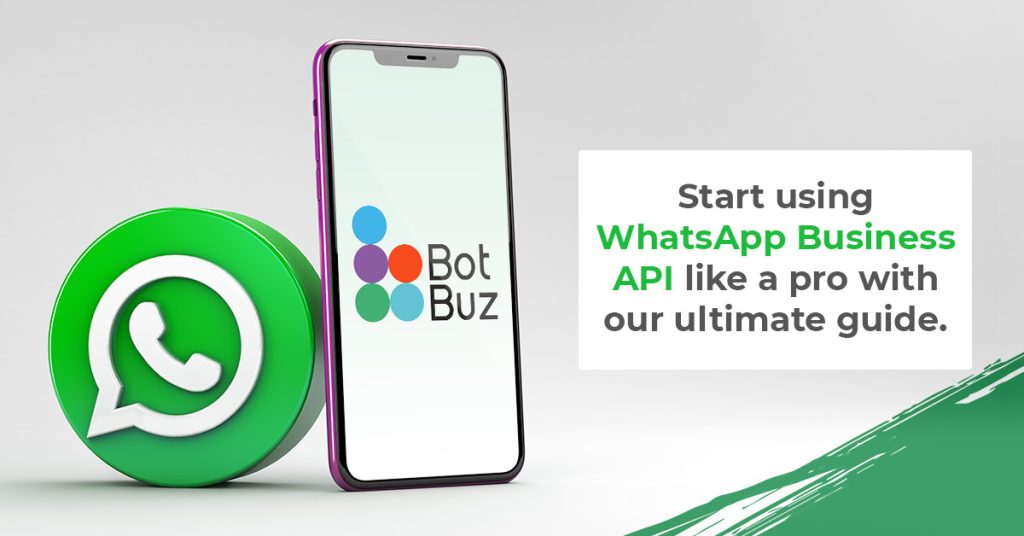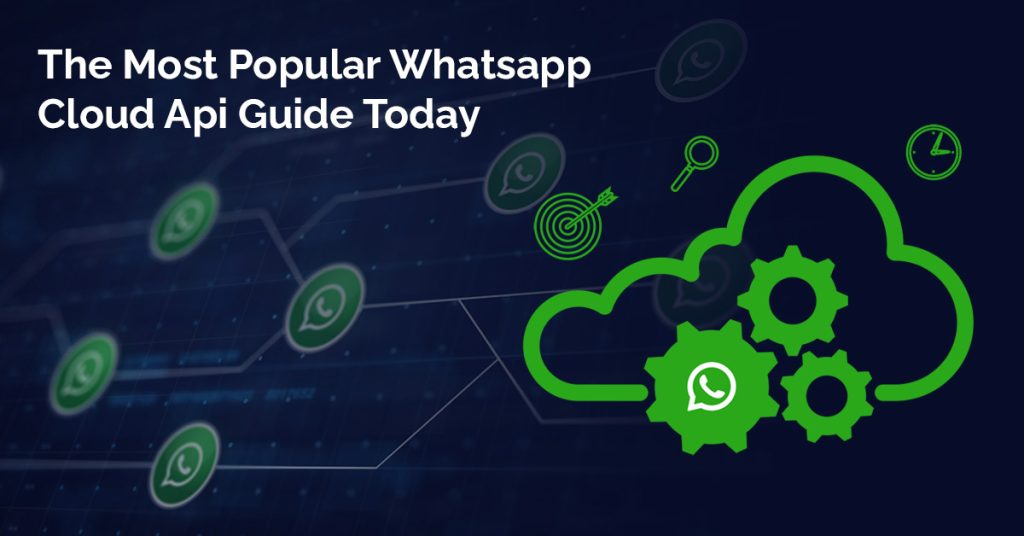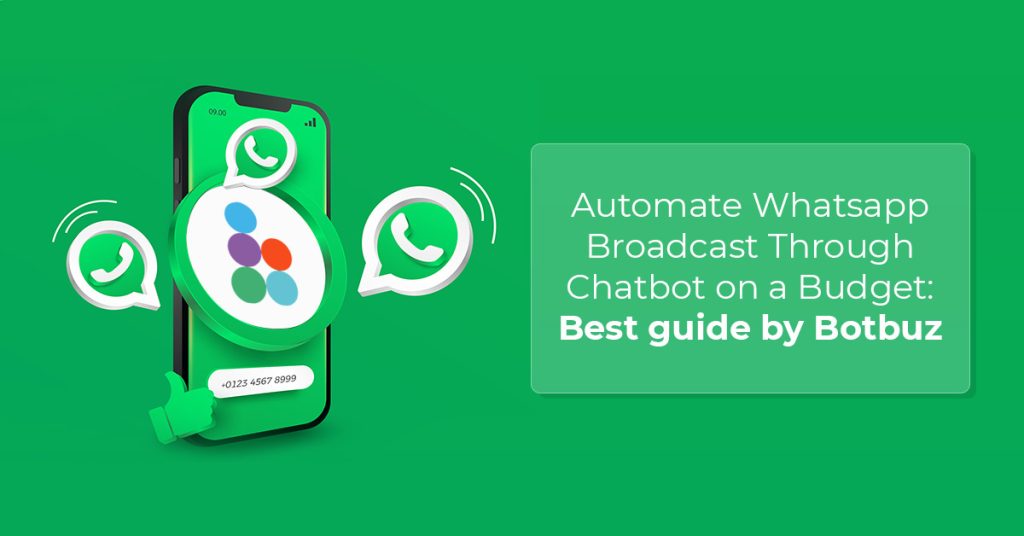- WhatsApp as the go-to platform for modern customer service :
- Why Use WhatsApp for Customer Service?
- Key Features of WhatsApp for Customer Service in 2025 :
- Techniques to Improve Customer Service on WhatsApp :
- Getting Business Discovered on WhatsApp for Customer Service :
- How to Send Notifications and Updates on WhatsApp for Customer Service?
- Meet Botbuz AI Support Agent: Support That Never Sleeps
WhatsApp as the go-to Platform for Modern Customer Service :
WhatsApp has become the top platform for modern customer service. Businesses are shifting to it because it’s convenient and secure. It allows for rich, two-way conversations with customers. In 2025, this trend is accelerating due to the rise of AI-powered chatbots. It offers personalized, 24/7 support.
Businesses are using WhatsApp for more than just service. They’re using it as a central hub for all customer interactions. Right from initial product discovery to sales & post-purchase support. This concept is known as conversational commerce. This strategic shift is crucial for companies. It helps to meet the high expectations of today’s consumers & stay competitive.
Why Use WhatsApp for Customer Service?
- People Already Use It: WhatsApp is incredibly popular. It has over 2 billion users worldwide. This means a huge number of your customers are already on the app. By offering support here, businesses are meeting their customers on a platform they know & trust. Thus, making it much more convenient for them.
- Always Available and Quick: Unlike a phone call that requires both people to be free at the same time, WhatsApp allows for flexible conversations. A customer can send a message whenever they want and get a response as soon as an agent is available. With the help of automated chatbots, businesses can even provide instant answers to common questions 24/7, which speeds things up a lot.
- It’s Safe and Trusted: All messages on WhatsApp are protected with end-to-end encryption. This means that conversations are private and secure. It is especially important for sensitive information. This security helps build customer trust & makes them feel comfortable sharing details with business.
- Building Better Relationships: WhatsApp’s one-on-one chat format feels more personal than an email or a social media comment. Businesses can use this to provide more personalized help. They can use rich media like photos and videos to solve problems faster. Because the entire chat history is saved, agents can easily see past conversations. Thus, leading to a more connected and loyal customer base.
Key Features of WhatsApp for Customer Service in 2025 :
App vs. API: Small businesses can use the free WhatsApp Business App, which is simple for one person to manage. For larger companies, the WhatsApp Business API is the way to go. It’s not an app but a powerful tool that connects WhatsApp to their existing business systems. Thus, allowing them to handle a huge number of messages and use automation.
Interactive “Flows”: WhatsApp now has a feature called “Flows.” This lets businesses create simple, step-by-step forms and menus right inside a chat. Customers can easily do things like book an appointment or fill out a survey by just tapping buttons. It makes the conversation much more interactive and efficient.
Sending Mass Messages and Group Chats: Businesses can send a single message to many different customers at once using a “Broadcast List.” The message looks like a personal chat to each person, which is great for announcements. For group projects or events where everyone needs to talk to each other, regular Group Chats are still an option.
Sharing Rich Content: WhatsApp allows businesses to share more than just text. They can send photos, videos, files, and even interactive product catalogs and invoices. This makes customer service more visual & helpful. For example, by sending a quick video to show a customer how to fix an issue.
Team-Based Support with CRM: Now, a whole team of agents can manage customer chats on WhatsApp. Using the API, all incoming messages go to a shared inbox where agents can see and respond to them. When connected to a company’s CRM system, agents can see a customer’s full history. It helps them provide faster, more personalized service.
Techniques to Improve Customer Service on WhatsApp :
WhatsApp provides businesses with a wide array of tools. It helps to enhance their customer service. Here are some of the most effective techniques to use in 2025:
1. Quick Replies and Automated Greetings
Quick replies allow you to create shortcuts for frequently asked questions. It reduces the time it takes to respond. Automated greetings instantly welcome customers and can set expectations about response times. This makes your business look professional and ensures customers know their message has been received, even outside of business hours.
2. Chatbots for First-Line Support
AI-powered chatbots are now sophisticated enough to handle the majority of basic customer inquiries. They can answer FAQs, provide product information. It can even guide customers through a purchase. For more complex issues, the chatbot can transfer the conversation to a human agent. Thus, providing the agent with the chat history for a smooth handoff.
3. Personalized Customer Engagement
WhatsApp’s one-on-one nature makes it perfect for personalization. Businesses can integrate WhatsApp with their CRM. It helps to access a customer’s purchase history, preferences, and past interactions. This allows agents to provide tailored recommendations or support, making customers feel valued. Furthermore, offering support in a customer’s local language is now easier than ever. All thanks to translation tools and multilingual chatbots.
4. Proactive Customer Updates
Instead of waiting for a customer to ask for an update, businesses can use WhatsApp to send proactive notifications. This includes sending order confirmations, shipping notifications, and delivery updates. Proactive communication improves transparency and reduces the number of incoming inquiries, as customers are kept informed every step of the way.
5. Integrating WhatsApp with CRM and Helpdesk Tools
Integrating WhatsApp with a CRM or helpdesk system is a game-changer for customer service teams. It centralizes all customer data and conversations in one place, giving every agent a complete view of the customer journey. This eliminates the need to switch between different tools, leading to faster, more efficient, and more personalized support.
6. Answering Customer Questions in Real-Time
The real-time nature of WhatsApp allows businesses to handle customer queries almost instantly. With quick replies, chatbots, and multi-agent support, businesses can ensure that customers receive a fast & accurate response. It minimizes wait times and improves satisfaction.
7. Sharing Booking and Rescheduling Options
For businesses that rely on appointments, WhatsApp is an excellent tool for managing bookings. It can be used to send automated booking confirmations and reminders. It reduces no-shows and cancellations. Customers can also easily reschedule or cancel appointments directly through the chat, which is incredibly convenient.
8. Keeping Customers Informed with Proactive Notifications
This goes beyond order updates to include a wide range of information. Businesses can use WhatsApp to send service alerts. It announces product launches, or informs customers about policy updates. This helps to prevent confusion and frustration before it even starts, as customers are always in the loop.
9. Promoting New Products and Services
WhatsApp can be a powerful marketing channel. By sending targeted broadcasts to segmented customer lists, businesses can promote new products or services without being spammy. This can lead to successful upselling and cross-selling, as messages are sent to customers who have opted in and are more likely to be interested.
10. Collecting Customer Feedback
After a purchase or a support interaction, businesses can use WhatsApp to send a quick survey or a review request. The ease of a quick poll or rating directly in the chat can lead to higher response rates. This feedback is invaluable for understanding customer satisfaction and identifying areas for improvement.
11. Offering Ongoing Support After the Sale
Customer service doesn’t end after a sale. WhatsApp can be used to provide continued support, such as offering troubleshooting help, sharing FAQs, or sending video tutorials. This nurtures long-term relationships and builds customer loyalty. They know they can rely on the business for support.
Getting Business Discovered on WhatsApp for Customer Service :
Getting found on WhatsApp for customer service is just as important as setting up your account. Here’s how businesses do it:
- Create a Professional Business Profile: Think of your WhatsApp profile as your digital business card. It’s where you put all the important information about your company, like your name, what you do, and your contact details. You can also list your business hours and even show a catalog of your products. A complete profile makes your business look trustworthy and professional.
- Add “Click to WhatsApp” Buttons Everywhere: Businesses are making it super easy for customers to start a chat. They are placing “Click to WhatsApp” buttons on their websites, in their email signatures, and on their social media pages like Facebook and Instagram. When a customer clicks the button, a new chat with the business opens instantly. It removes any hassle & makes communication simple.
- Use QR Codes for Easy Connection: QR codes are a great way to link your physical business to your digital WhatsApp presence. You can put a unique QR code on things like receipts, product packaging, or even on a sign in your store. When a customer scans it with their phone, it immediately opens a chat with you. This is a very quick and effective way to get people to connect with you.
How to Send Notifications and Updates on WhatsApp for Customer Service?
How a business sends updates on WhatsApp depends on its size and needs, using either the free WhatsApp Business App or the more advanced WhatsApp Business API.
1. WhatsApp Business App: For Small Teams
The WhatsApp Business App is a free and simple solution perfect for small businesses. It’s easy to set up on a mobile phone and is great for managing conversations manually. Businesses can use features like “Broadcast Lists” to send a single message to a group of customers at once, which is useful for sending out promotions or announcements. However, this app has limited automation and is not designed for a large volume of messages or multiple users.
2. WhatsApp Business Platform (API): For Large Companies
For medium to large companies, the WhatsApp Business Platform is the solution built for scale. It’s not a mobile app but a powerful tool that integrates with a business’s existing software, like its CRM. The API allows for the automation of a high volume of notifications, such as order confirmations, shipping updates, and appointment reminders. This platform is also essential for teams, as it allows multiple agents to manage customer conversations from a single, shared inbox. While it requires a more complex setup, it’s the only way for large businesses to provide efficient, automated, and personalized service at scale.
Meet Botbuz AI Support Agent: Support That Never Sleeps
The Botbuz AI Support Agent offers 24/7 customer service, ensuring customers can get instant help anytime, day or night. Powered by AI, it provides personalized responses by understanding natural language and accessing customer data. This allows businesses to handle a massive volume of inquiries without needing to hire more human staff, effectively scaling their support operations while keeping costs down and freeing up human agents for more complex tasks.
Why Does Botbuz Make WhatsApp Support Simple ?
Botbuz is a platform that simplifies using WhatsApp for business customer service. It handles the complicated technical parts of integrating with the WhatsApp Business API, making it easy for companies of any size to use advanced features. Botbuz also uses AI to automate common tasks like answering FAQs and sending order updates, which frees up human agents. Finally, it provides a single inbox where a whole team can manage all customer conversations, ensuring no messages are missed and providing a seamless, consistent customer experience.
Conclusion :
The key to modern customer service is using technology to make it both efficient and personal. Businesses should use techniques like automated responses, proactive updates, and data-driven personalization. A platform like Botbuz makes these advanced strategies easy to implement by simplifying the technical aspects of WhatsApp for business. Its AI agent provides 24/7 support for simple tasks, allowing human agents to focus on complex issues. This creates a powerful hybrid model that improves customer satisfaction, builds loyalty, and drives business growth by exceeding customer expectations.




